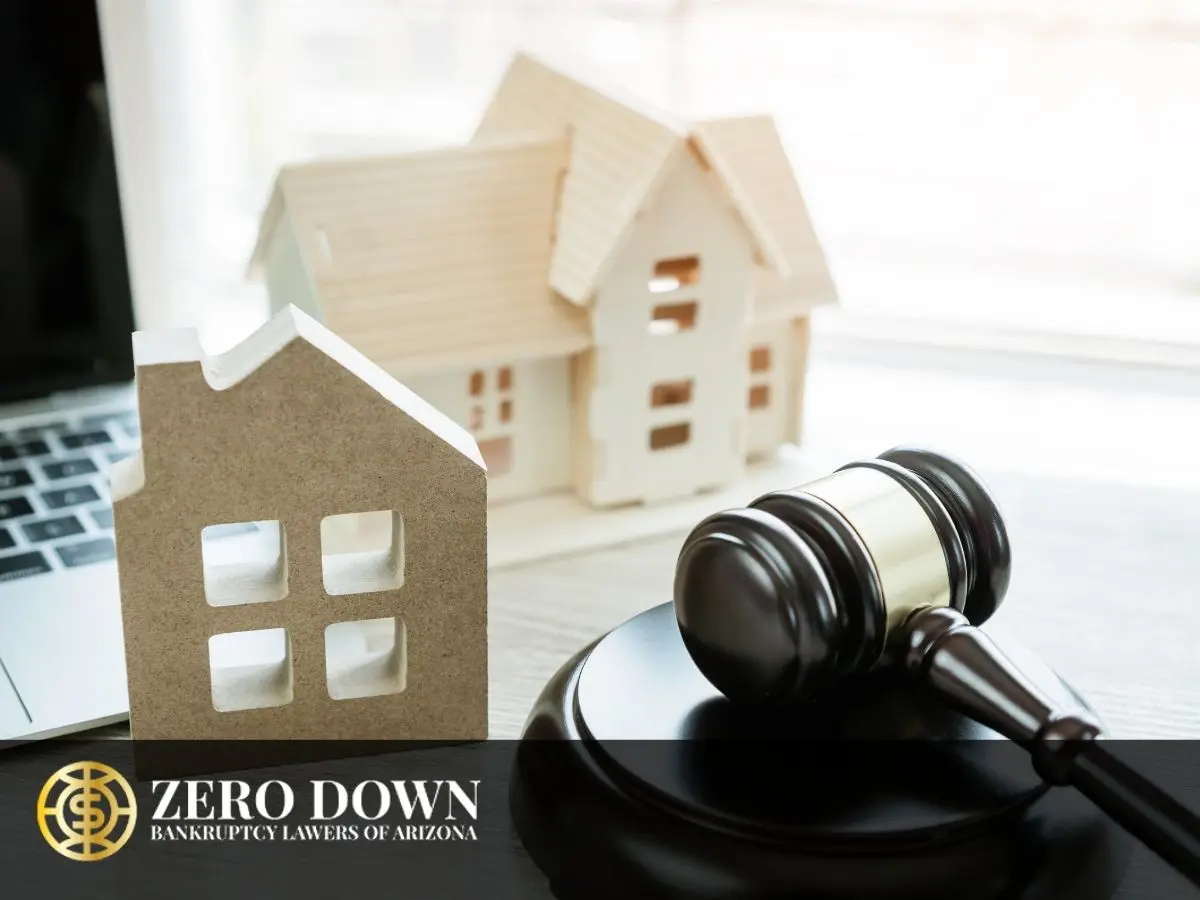Essential Things Arizona Homeowners Must Know Before Filing Chapter 7 Or Chapter 13 Bankruptcy
In many situations, a quick internet search is sufficient to estimate the value of your home. Bankruptcy is not one of them. While unemployment rates in 2020 reached record levels, many people also saw their homes’ values skyrocket. This is not something that goes ignored in a bankruptcy context. If you own your own home, read on to learn more before filing either Chapter 7 or Chapter 13 bankruptcy.
Who Is The Bankruptcy Trustee?
In every bankruptcy, a court-appointed attorney known as a trustee is assigned to oversee the case. This comes with several duties. An Arizona Bankruptcy Trustee will review your petition for omissions and inconsistencies, as well as violations of bankruptcy code. Plus, your creditors may have requests that your trustee will need to review as well. Additionally, your trustee will also likely request additional documentation from you after reviewing your petition.
Once your petition is submitted, the bankruptcy trustee will then be reviewed in person at your 341 Meeting of Creditors. During this hearing, your trustee will verify your identity, ask questions about your petition, and possibly address your creditors’ questions as well. Our Arizona Bankruptcy Attorney will be with you every step of the way.
What Is An Exemption In a Bankruptcy?
Every state has its own bankruptcy exemptions. Exemptions must be applied to assets to protect them during bankruptcy. An exemption can either be applied to the paid-in-full value of your home, or the amount of equity you have in a mortgaged home. If you don’t apply exemptions to protect your property in a Chapter 7 bankruptcy, the trustee can seize your assets. They will then be sold, and the proceeds will be used to pay legal fees and your creditors. You would be able to keep the exempt equity. If your assets are too valuable to be protected by exemptions, filing Chapter 7 bankruptcy will put them at risk. You should consider filing Chapter 13 instead, as these exemption limits won’t apply.
Why Your Home’s Value Is Important
In a Chapter 7 bankruptcy In Arizona
Your home must be protected by state exemptions, or the trustee can seize it and sell it to pay himself and your creditors.
In a Chapter 13 Bankruptcy In Arizona
If you own your house, this could greatly affect the structure of your payment plan. If your home would not be protected in a Chapter 7, you will still need to pay at least the non-exempt value of your home in your plan.
What Is The Arizona Exemption For a Home?
In Arizona, the homestead exemption is $150,000. The exemption can vary widely by state.
What If I Have More Equity Than The Exemption Amount?
If your house has more equity than the applicable exemption, the simplest solution is to file Chapter 13 rather than Chapter 7 bankruptcy. However, if your home is close in value to your state’s exemption, you may want to consider emburdening it to reduce your equity. You should consult with an experienced Phoenix bankruptcy attorney to make sure this is executed properly.
How Will My Home’s Value Be Determined In Bankruptcy?
You will list your home’s current value, or fair market value, on your bankruptcy petition. There are several methods you can use to value your home, but the trustee may use a different method if he disagrees with your valuation. You will then deduct any liens from the value you reach. Liens can include mortgages, secondary mortgages, tax liens, and more.
If you are fairly certain that your home is protected by Arizona’s homestead exemption, simple online searches may be sufficient to determine your home’s value. For example, you may have bought the home fairly recently, and haven’t paid off much of your mortgage. Zillow, Trulia, and other sites should give you a general idea of what your home is worth.
Another way to estimate your home’s value is with a comparable market analysis. This method can be more accurate than online searches, while still being relatively inexpensive. This involves hiring a licensed realtor to compare your home to others nearby. Your home’s condition, size, and other factors will be used by the realtor for market analysis.
The most reliable way to determine your home’s value is with a full appraisal. You may conveniently already have an appraisal if you have recently refinanced or modified your mortgage. To complete a full appraisal, a licensed real estate appraiser will need to come inspect your property. The appraiser will also comprise a list of recent comparable home sales. The appraiser will provide a detailed report explaining their valuation of your home. This option is the most expensive, but isn’t usually necessary except in complex cases.
Will The Bankruptcy Trustee Come To Inspect My Home?
In the vast majority of bankruptcy cases, the trustee will not visit the debtor’s home. If you and the trustee reach similar values, or you aren’t close to the exemption value, it simply won’t be necessary. However, the trustee is entitled to visit and inspect your house to verify the information in your bankruptcy petition. While it is unusual, you should never rule out the possibility of your bankruptcy trustee coming to your home.
Many Trustees Are Pursuing The Appreciated Value In Debtors’ Homes
With the current state of the real estate market in Arizona, it’s possible that your home may sharply increase in value from when your petition is filed to when your case is discharged. Any non-exempt appreciated value in your home during your case goes not to you, but your bankruptcy estate. For example, your home was worth $200,000 when your case was filed, and your mortgage had a balance of $75,000. This would have given you $125,000 equity in your home at the start of your bankruptcy. However, during your bankruptcy, your home increased in value by about $50,000, and your equity is now approximately $175,000. Any amount over the homestead exemption, or $150,000 in Arizona, must be paid to the bankruptcy estate. Here, that would be about $25,000.
Why Does a Trustee Go After The Equity?
Your bankruptcy trustee has a pointed interest in pursuing non-exempt equity in your home. In a Chapter 7 bankruptcy, your trustee will receive a percentage of any assets sold for the bankruptcy estate. In a Chapter 13 bankruptcy, your trustee receives a portion of your plan payments. If your trustee can increase your plan payments due to an increase in your home’s value, your trustee will in turn receive additional payment.
The Best Course Of Action: Contact An Experienced Bankruptcy Attorney In Phoenix
Every bankruptcy is different, so it’s impossible to say what your course of action would be without full details about your situation. There could be several creative solutions available to your home value issues in bankruptcy. If your home is rapidly increasing in value, but you still need to file bankruptcy, one of our experienced bankruptcy attorneys in Arizona would be happy to assist you with your decision. For more information, as well as an affordable quote for legal services with post-filing payment options available, call or use our online form to schedule your free consultation today.
Arizona Offices
Phoenix Location:
343 W Roosevelt Street, Suite #100
Email: [email protected]
Phone: 602-609-7000
Mesa Location:
1731 West Baseline Rd., Suite 101
Email: [email protected]
Glendale Location:
20325 N 51st Avenue, Suite #134
Email: [email protected]
Tucson Location:
Email: [email protected]











